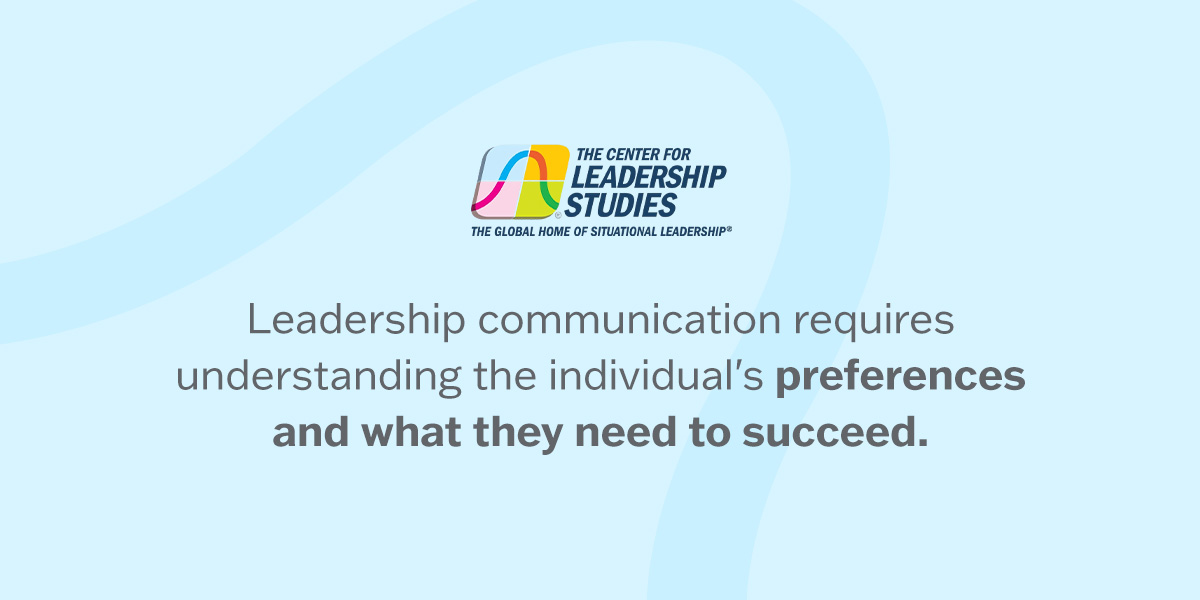

Communication is at the core of every leadership action. It’s a crucial tool that allows leaders to inspire, motivate and build accountability among team members. Engaging with individuals using the right communication skills can completely transform the work culture and productivity.
How can team and company leaders become visionaries for empowering and innovative leadership? They must work on five key skill areas.
Leaders need to be skilled communicators who can express the company’s vision in a way that motivates and creates accountability. Communication is a socio-psychological adhesive that allows a business to develop synergistic cooperation. Here are a few of the reasons why it’s so important:
Contrary to what some naysayers believe, effective communication is the most critical skill a leader can have. It is the tool that allows leaders to perform every other duty with ease and support. Here are the top five communicative skills that every good leader should have:
There are fundamental layers that create effective leadership communication that works. Here are the essential factors that contribute to clear leadership interactions:
Storytelling is a conversational skill that allows leaders to share data, metrics or vision in a way that inspires emotions and makes the information more memorable. The ability to share knowledge in a narrative way can boost leadership effectiveness and encourage a positive dynamic. Crafting a compelling story requires four essential attributes:

Selecting the appropriate communication channel is essential to resonating with your audience. Verbal engagement, like phone calls and face-to-face conversations, is ideal for persuasive and impromptu discussions. Written communication, like newsletters, is perfect for formal announcements, especially for dispersed audiences. Digital channels like videos and webinars are suitable for special announcements and training protocols.
Understanding the audience is the key to figuring out which medium best suits the message you need to deliver. The best leaders are adaptive and recognize that no one-size-fits-all solution exists.
Leadership communication requires understanding the individual’s preferences and what they need to succeed. You should also consider their authority on the subject and level of interest. For example, a meeting with potential clients who are experts in the field would call for a more formal and persuasive approach. Communicating with employees or a younger demographic might need a more casual tone.
Communication in leading roles is just as much about listening as it is about speaking—leaders must understand before responding. It shows respect and helps garner authority and transparency. Active listening requires the individual to engage with several skill sets, like evaluating emotional responses, setting up feedback mechanisms to demonstrate approachability and assessing tone and body language.
Compassion is one of the key skills of a good leader, even when working with hybrid teams, where understanding and adjusting to their unique realities can help establish trust. Two-way communication is an effective technique for increasing a leader’s perceived approachability. It builds the road for effective and authentic feedback. Offer convenient and supportive feedback methods like one-on-one meetings and digital surveys.
Effective communication skills help motivate and inspire individuals to put more effort into their duties and work together to meet the company’s vision. Here are four strategies to master uplifting communication as a leader:
Leaders must have a metric to evaluate the impact of their communication. Setting expectations before an engagement can help meet the key goals. Establishing deadlines or highlighting specific calls to action also measures the impact of every connection point.
Key performance indicators (KPIs) are excellent tools for measuring engagement rates and feedback quality in communication. Setting up platforms for continuous improvement based on feedback creates a culture that prioritizes authentic evaluation. Here are the best tools leaders can use to assess the effectiveness of their communication:
Effective communication involves defining the purpose, selecting the correct approach for the audience and using tools to evaluate the outcome.
The Center for Leadership Studies (CLS) specializes in training leaders to communicate more effectively. Whether you want to work on adapting your communication style or find ways to lead more purposeful conversations, our Communicating Effectively course can help you achieve your goals. For more information about our training solutions, complete our online form and our team will get in contact with you!
